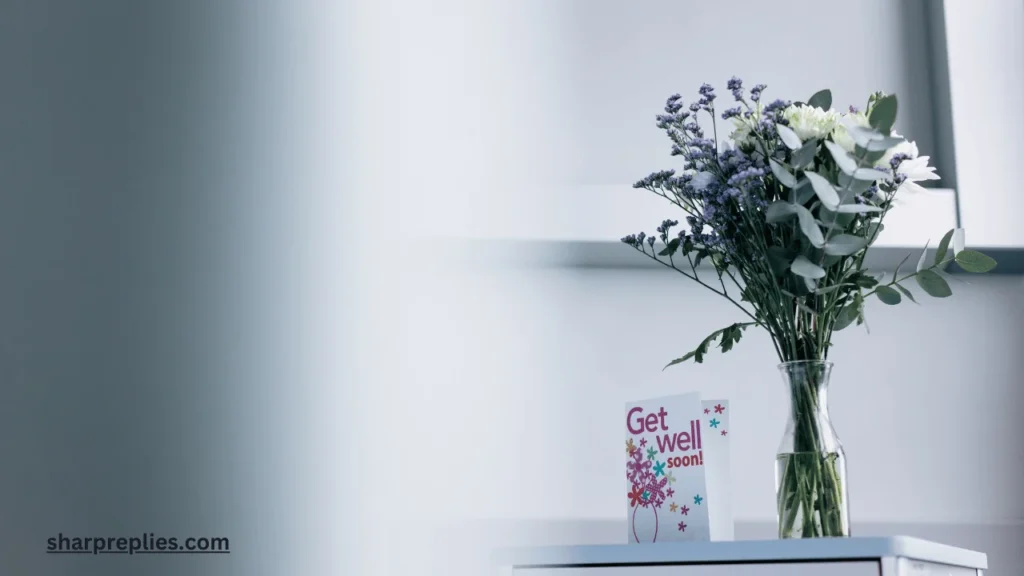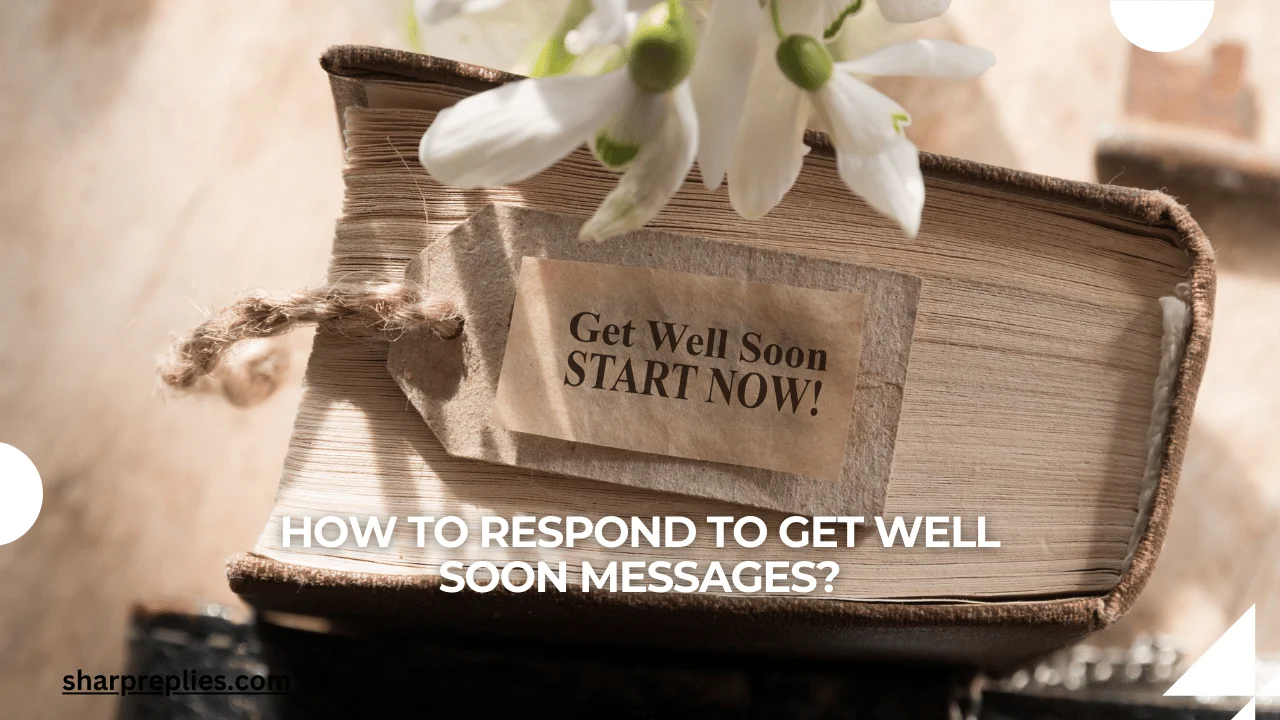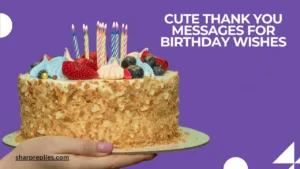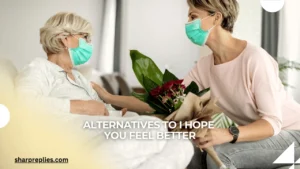When you’re feeling unwell, receiving a heartfelt “Get well soon” message can be a small, but powerful reminder that someone cares about your well-being.
These messages are often accompanied by warm wishes and positive sentiments, designed to lift your spirits during a difficult time. However, when you’re on the receiving end of such messages, it can sometimes feel tricky to craft the right response.
How do you respond appropriately while expressing your gratitude without sounding overly formal or distant?
In this article, we’ll explore the best ways to respond to “Get well soon” messages, from casual to more formal responses. Whether it’s a friend, family member, colleague, or acquaintance reaching out, knowing how to reply graciously can strengthen your relationships and create a supportive environment.
So, if you’re uncertain about how to craft the perfect response, read on for some valuable tips to make your reply both meaningful and appreciative.
Contents
- 1 Acknowledge the Thoughtfulness Behind the Message
- 2 Share a Positive Update on Your Recovery
- 3 Show Appreciation for Their Support
- 4 Keep It Light and Casual (If Appropriate)
- 5 Offer Gratitude for Any Additional Help or Actions Taken
- 6 Conclusion:
- 7 FAQ’s
- 7.0.1 How should I respond to a “Get well soon” message from a coworker?
- 7.0.2 Is it necessary to give a detailed recovery update?
- 7.0.3 What if I don’t feel better yet?
- 7.0.4 How do I respond if I don’t feel comfortable talking about my illness?
- 7.0.5 Can I add humor to my response?
- 7.0.6 What if someone offers to help me while I recover?
Acknowledge the Thoughtfulness Behind the Message
When you receive a “Get well soon” message, the first thing to do is acknowledge the kindness behind the gesture. People send these messages to show they care, so it’s important to express gratitude for their well wishes. A simple “Thank you so much for your kind words” shows appreciation for their thoughtfulness.
You can also add something specific, such as, “It means a lot to me that you took the time to check in.” This personal touch helps the other person feel that their gesture was not only noticed but also valued. When you respond with genuine thanks, it establishes a positive and empathetic tone in the conversation.
If you’re close to the person, you can get more personal in your response. For instance, “Your message really brightened my day, thank you for thinking of me” shows a deeper emotional connection and can make the exchange feel more heartfelt.
Another great way to respond to “Get well soon” messages is by sharing a positive update about your recovery. People send these messages with the hope that you’ll get better soon, so letting them know how you’re doing can offer reassurance. It’s not only polite but also helps to keep the conversation going.
For example, you can say, “Thank you! I’m feeling a little better each day and am hoping to be back to my normal self soon.” This reply reassures the sender that their well wishes are having an impact and that you’re making progress in your recovery. It can also be a great way to keep the person informed without feeling the need to provide too many details.
If you’re feeling up to it, you can even include something more specific, like, “The doctor said I’m on the right track. Thanks again for your support!” This provides a bit of context and shows you’re actively engaged in getting better.
Show Appreciation for Their Support
In many cases, receiving a “Get well soon” message isn’t just about the wish for recovery, but it’s also an expression of support. Responding by acknowledging this support can go a long way in strengthening your relationship. You might say, “I really appreciate your support, it’s been such a comfort during this time.”
When people care enough to send good wishes, it’s important to show that you value their emotional presence. This could include thanking them for their encouragement or offering a brief mention of how their message helped lift your spirits.
For example: “Your words really lifted my mood and made me feel better. Thank you for your kindness.”
Not only does this type of response reflect appreciation, but it also reinforces the fact that you are feeling supported and cared for, which can enhance the sense of connection between you and the sender.
Keep It Light and Casual (If Appropriate)
If the sender is a close friend or family member, a more casual and light-hearted response might be fitting. You can keep things upbeat while still being grateful for their message.
A response like, “Thanks! I’m hoping to be back on my feet soon and give you a big hug!” adds a little humor while also acknowledging their kind gesture.
Humor can be a great way to lighten the mood, especially if the sender is someone you have a comfortable and playful relationship with.
A response like “I’m definitely feeling better—hopefully, my recovery will be as fast as your text messages!” shows appreciation while bringing a bit of positivity and joy to the conversation.
By keeping your reply light and fun, you make the exchange more personal and convey that you’re in good spirits despite your illness.
Offer Gratitude for Any Additional Help or Actions Taken

In some cases, a “Get well soon” message may come with an offer to help, such as bringing over food, offering to run errands, or simply lending a listening ear. If the sender has gone beyond just sending a message and has taken some action, it’s important to thank them specifically for their support.
For example, if someone offered to help with errands, you can reply with, “I truly appreciate your offer to help me with groceries. It’s so thoughtful of you, and I’ll take you up on it soon!” This specific acknowledgment shows that their offer was noticed and valued, and it encourages continued support during your recovery.
When people offer their time and resources, responding with gratitude and specific thanks makes the exchange more meaningful. This not only builds your relationship but also ensures that the person feels appreciated for their kindness.
Conclusion:
Responding to “Get well soon” messages doesn’t have to be a stressful task. Whether you’re replying with a simple thank you, updating the sender on your recovery, or acknowledging their support, the key is to remain sincere and gracious.
A thoughtful response shows that you appreciate the kind words and that you value the relationship.
Each message you receive is an opportunity to deepen your connection with others by expressing your gratitude and sharing a bit about your well-being.
By offering a response that is heartfelt, specific, and positive, you not only lift the spirits of the sender but also contribute to a more supportive and empathetic environment for yourself and those around you.
FAQ’s
How should I respond to a “Get well soon” message from a coworker?
A professional yet friendly response such as, “Thank you for your kind words! I’m getting better and look forward to returning to work soon” works well in a work environment.
Is it necessary to give a detailed recovery update?
It’s not necessary to go into detail. A general update like “I’m feeling much better, thanks!” is sufficient unless the person asks for specifics.
What if I don’t feel better yet?
You can still be positive by saying, “Thanks for your message! I’m taking things one day at a time and hoping to feel better soon.”
How do I respond if I don’t feel comfortable talking about my illness?
If you’d prefer not to share details, a simple “Thank you, I really appreciate your thoughts and well wishes” is a gracious way to reply.
Can I add humor to my response?
Yes, if you have a friendly relationship with the person, humor can be a great way to keep the mood light, such as saying, “I’m starting to feel like myself again—soon I’ll be running circles around everyone!”
What if someone offers to help me while I recover?
If someone offers help, respond with gratitude, e.g., “Thank you so much for offering to help! I may take you up on that soon.”








